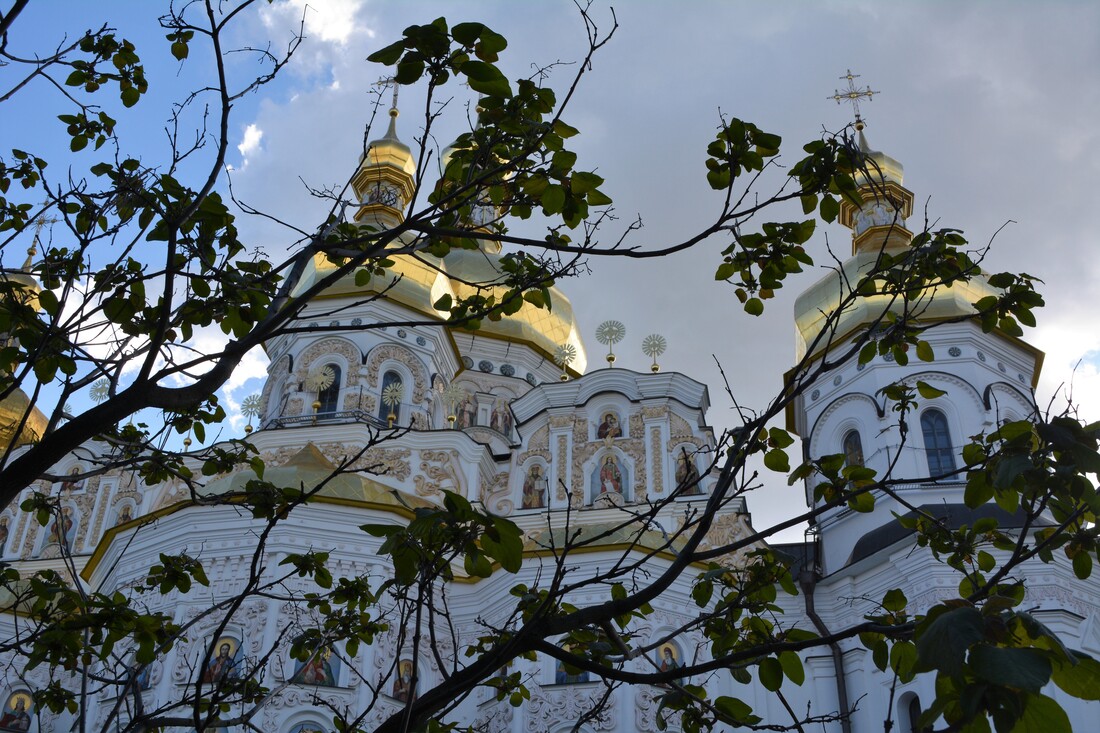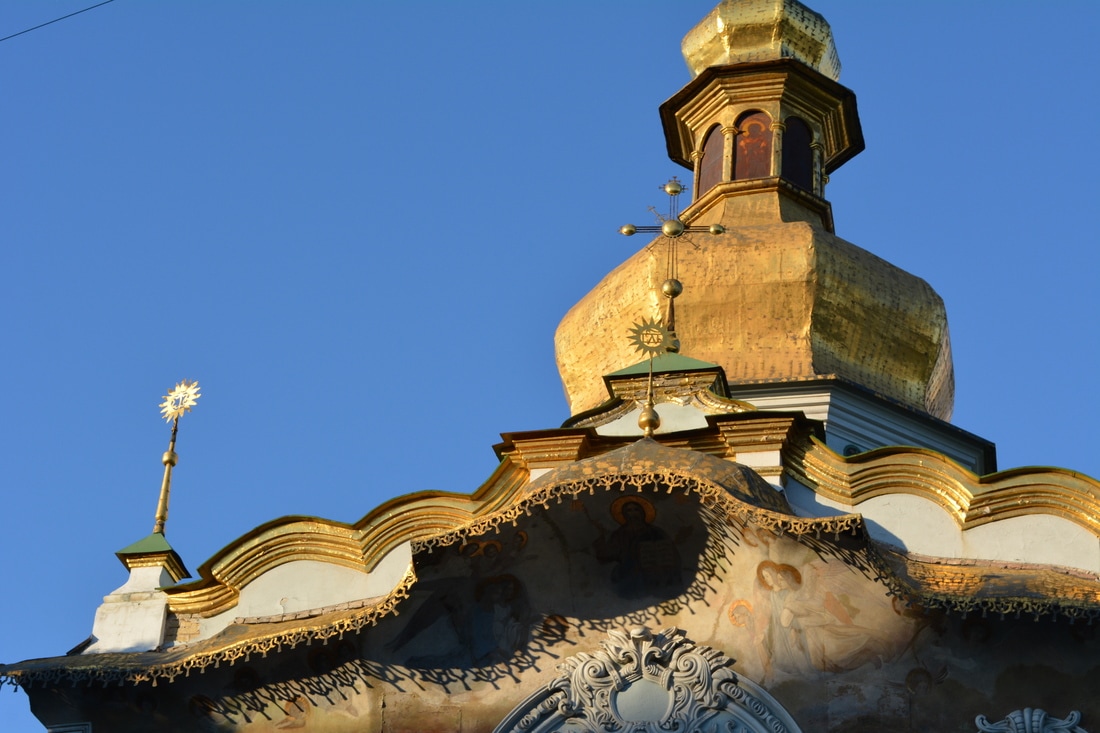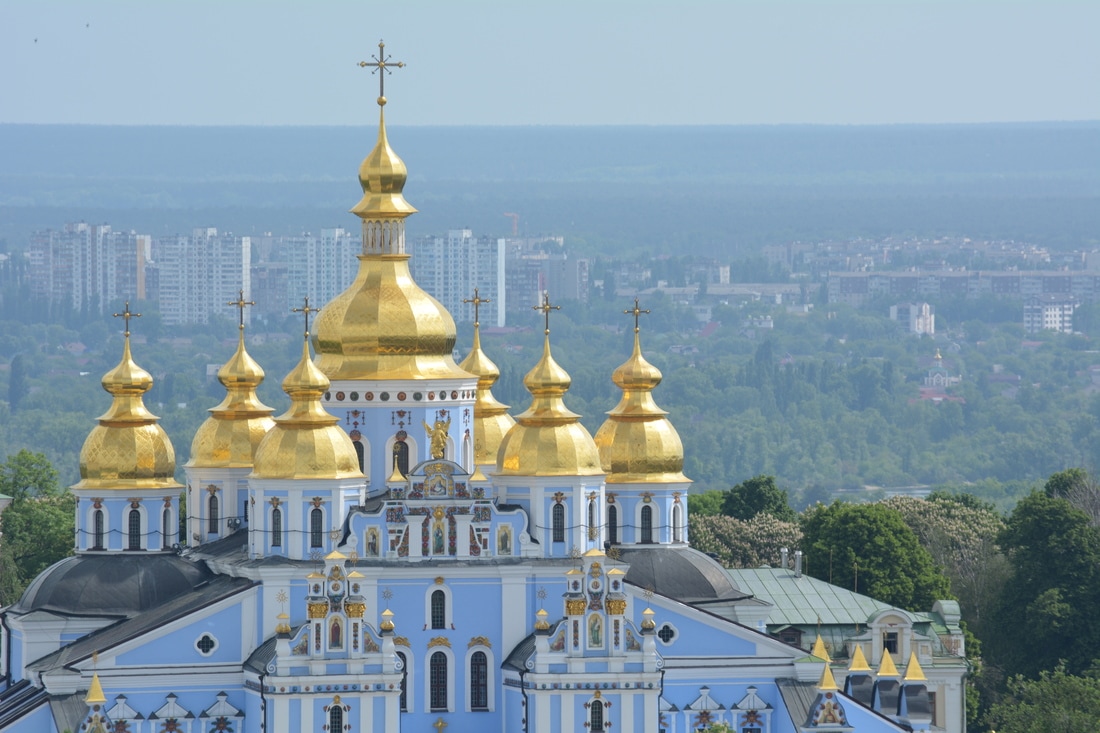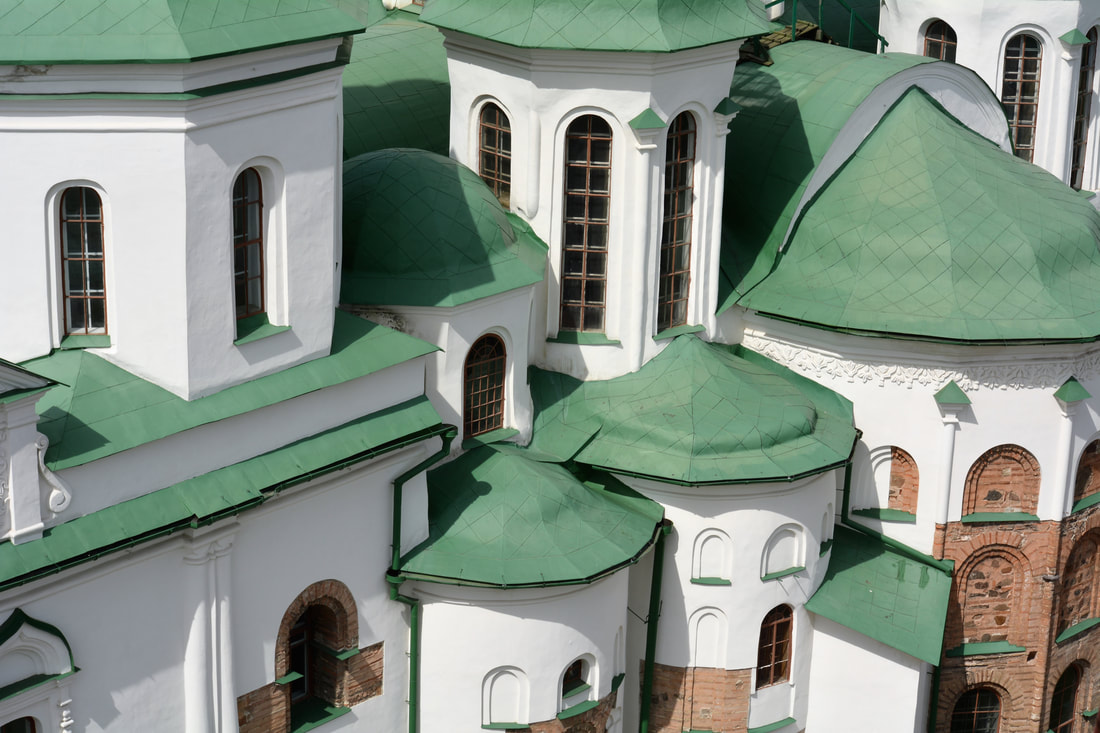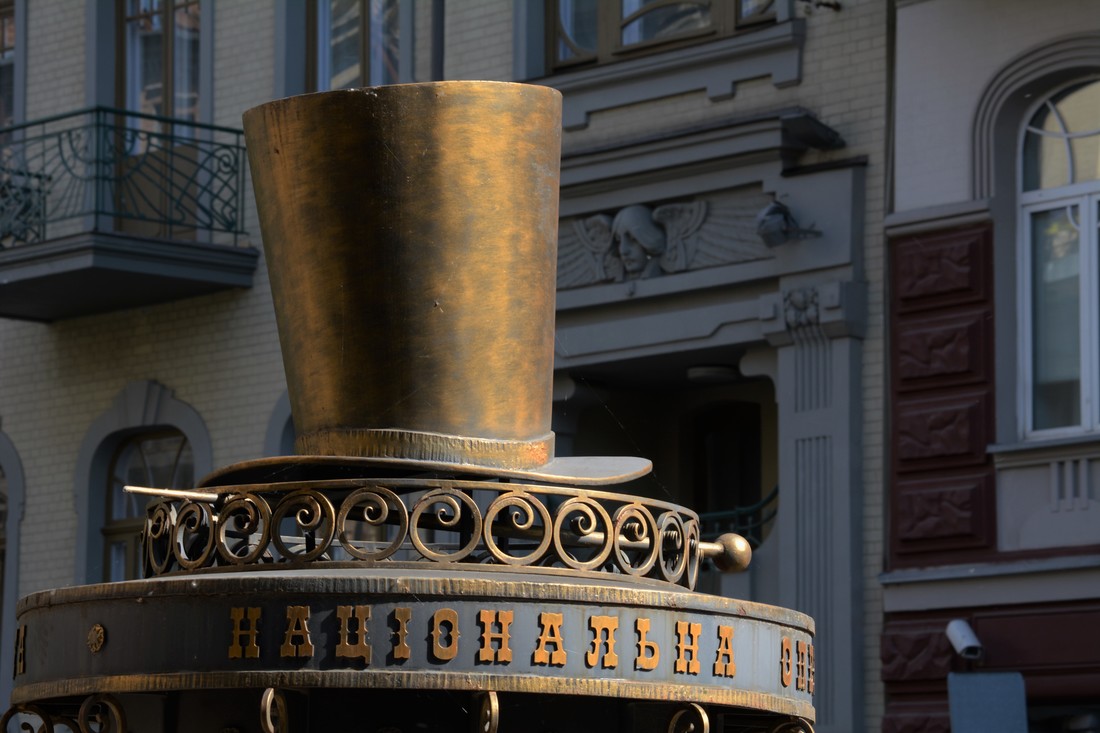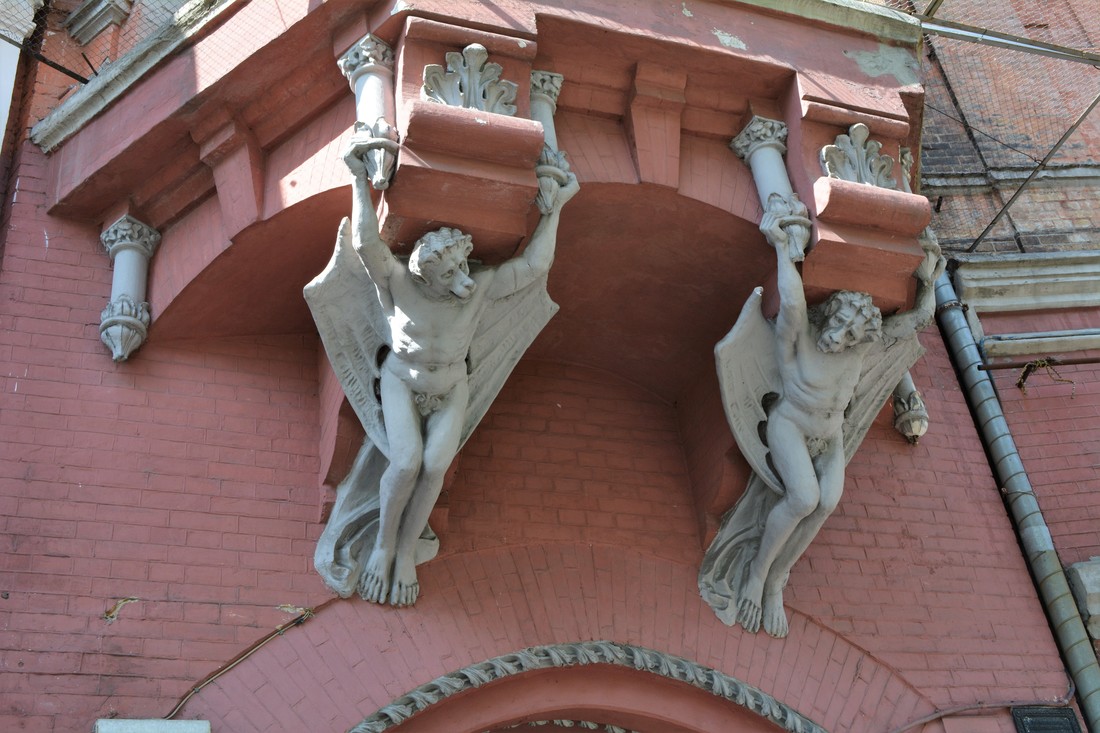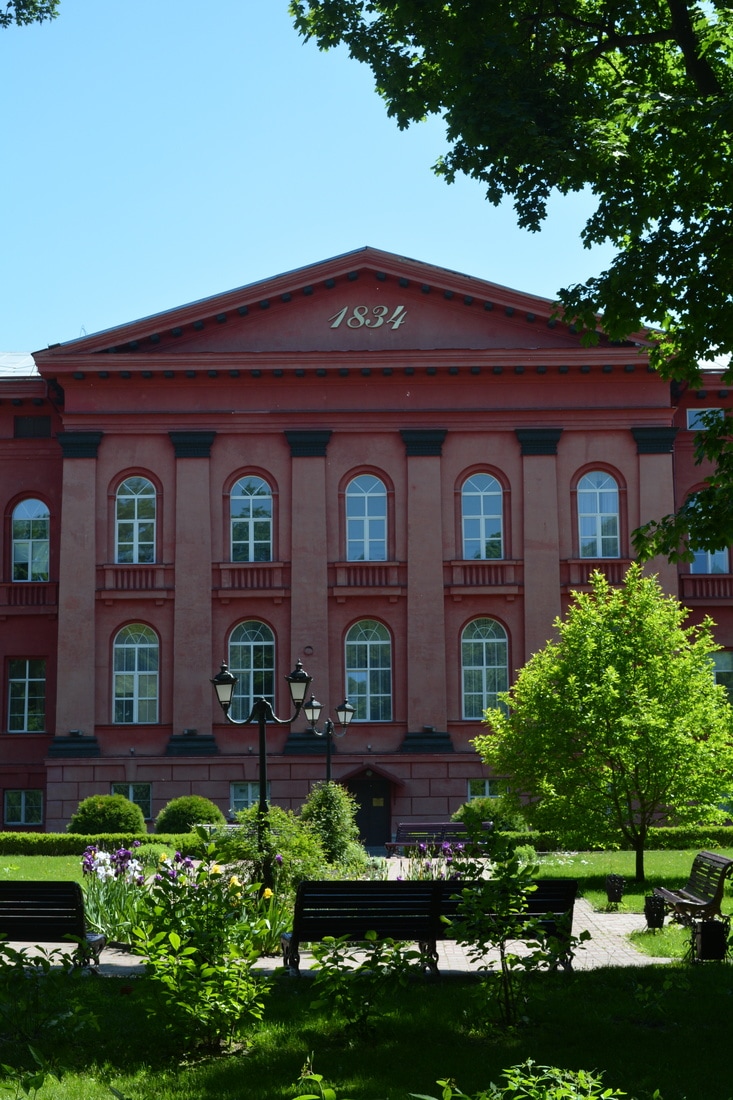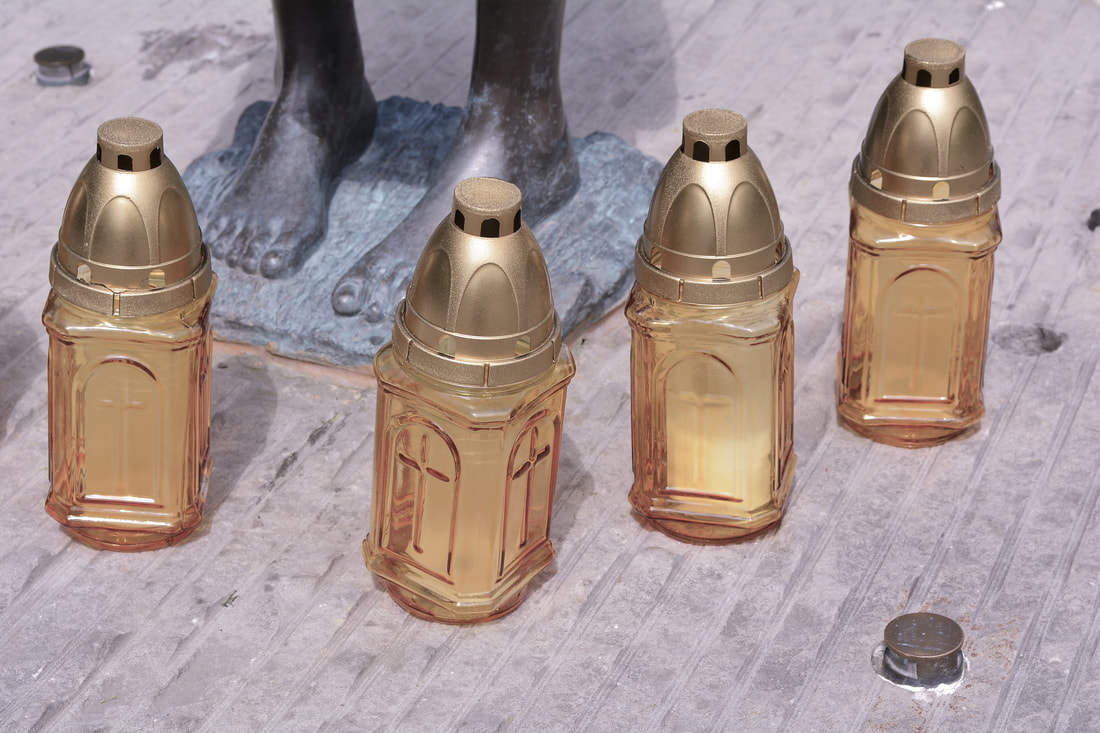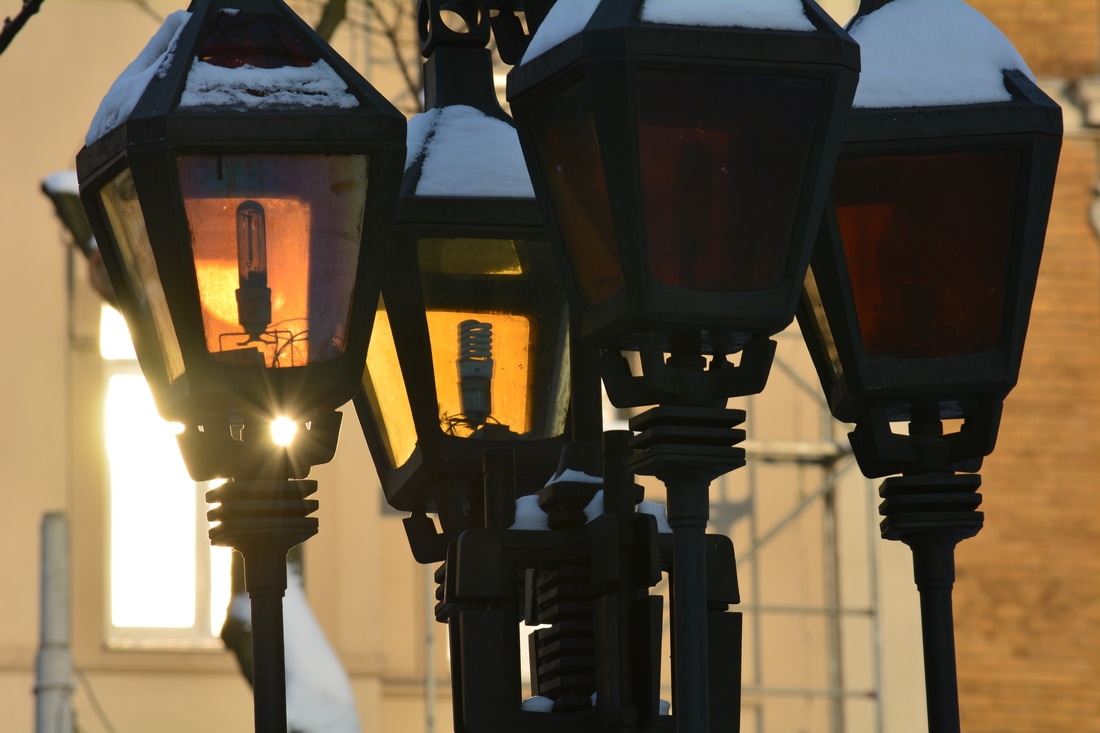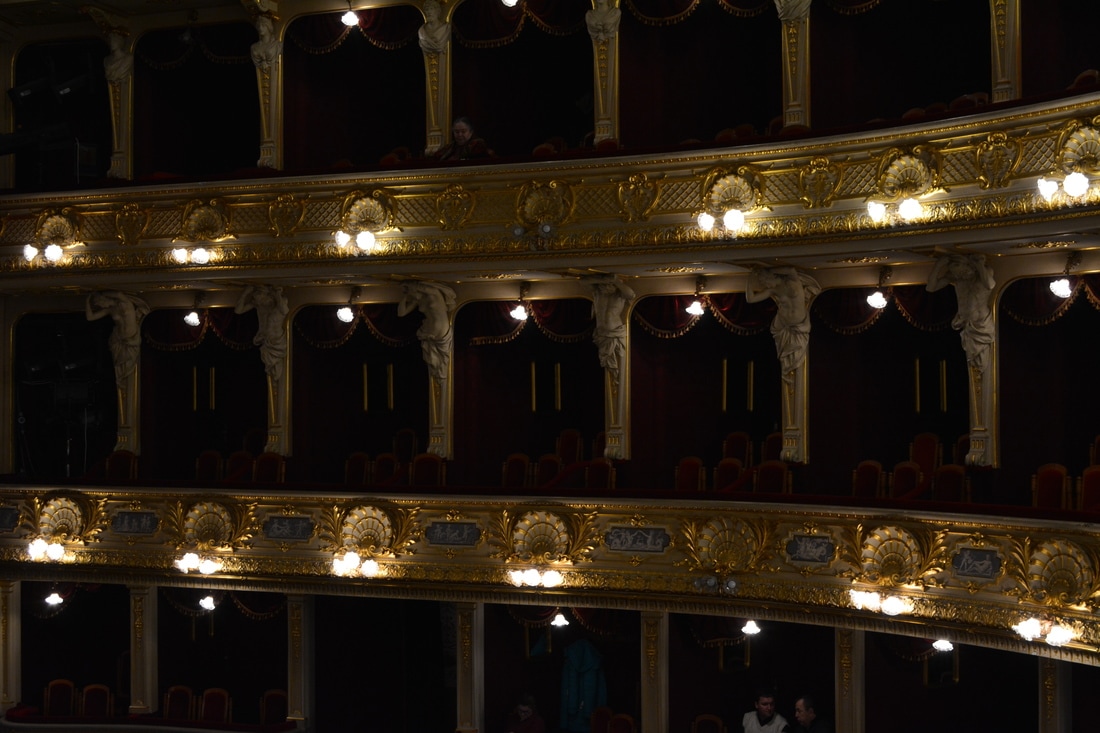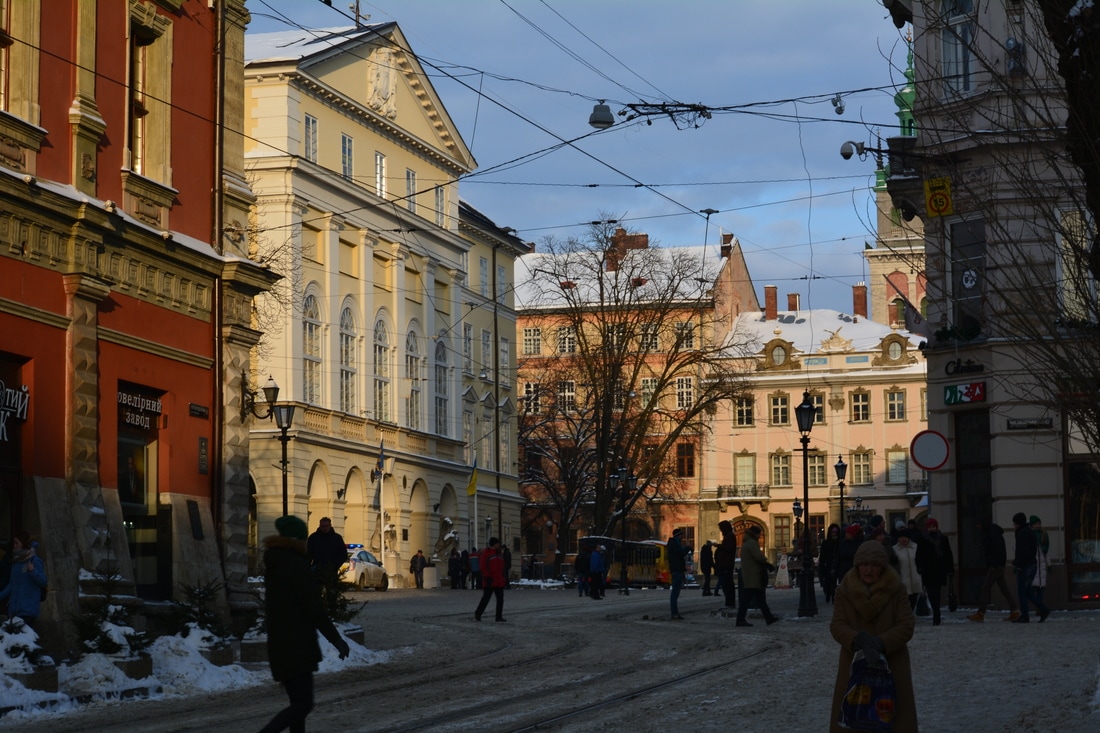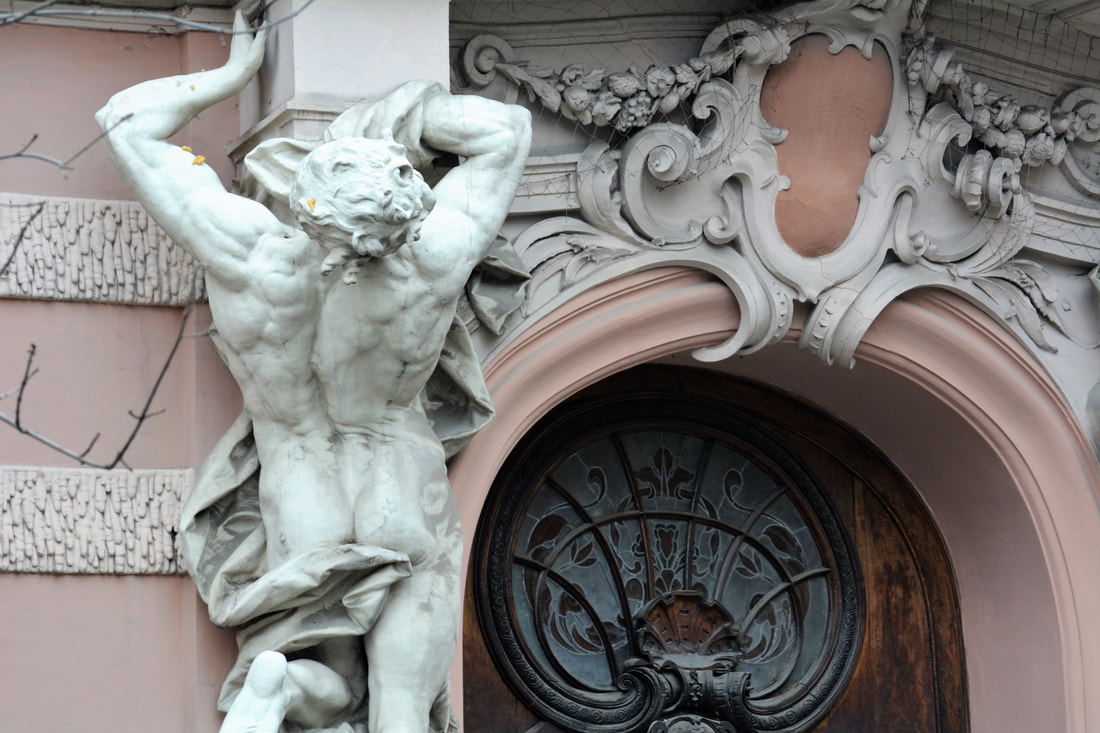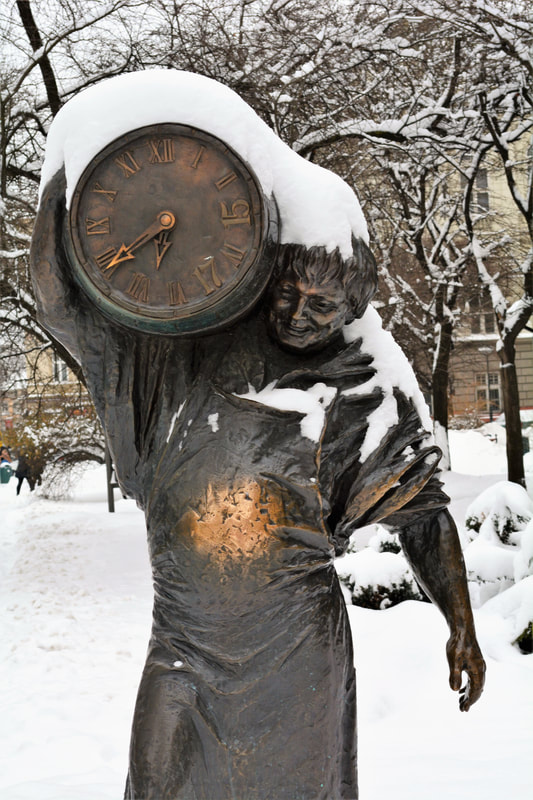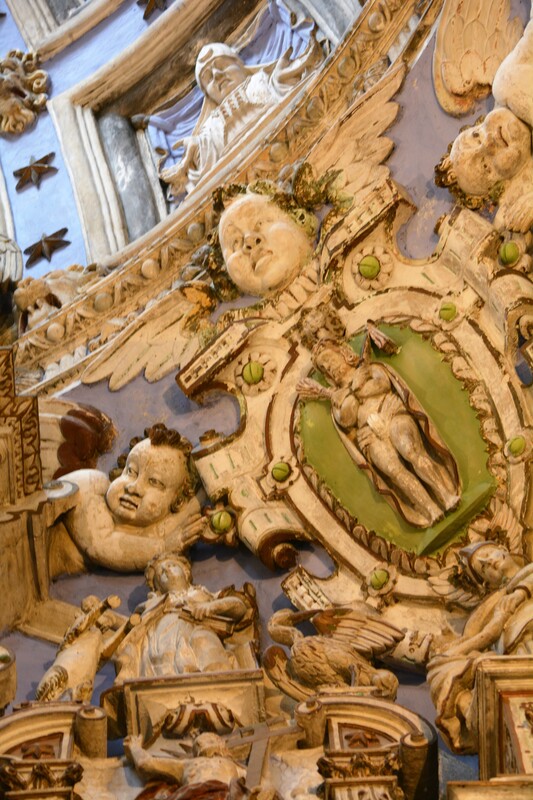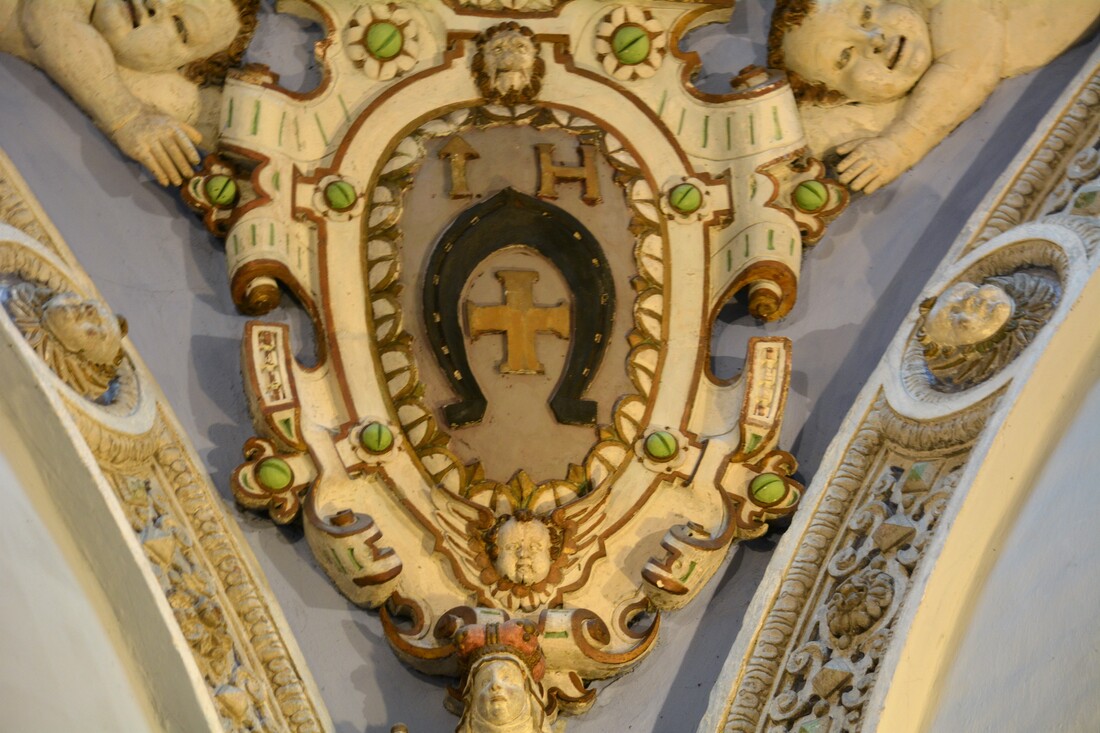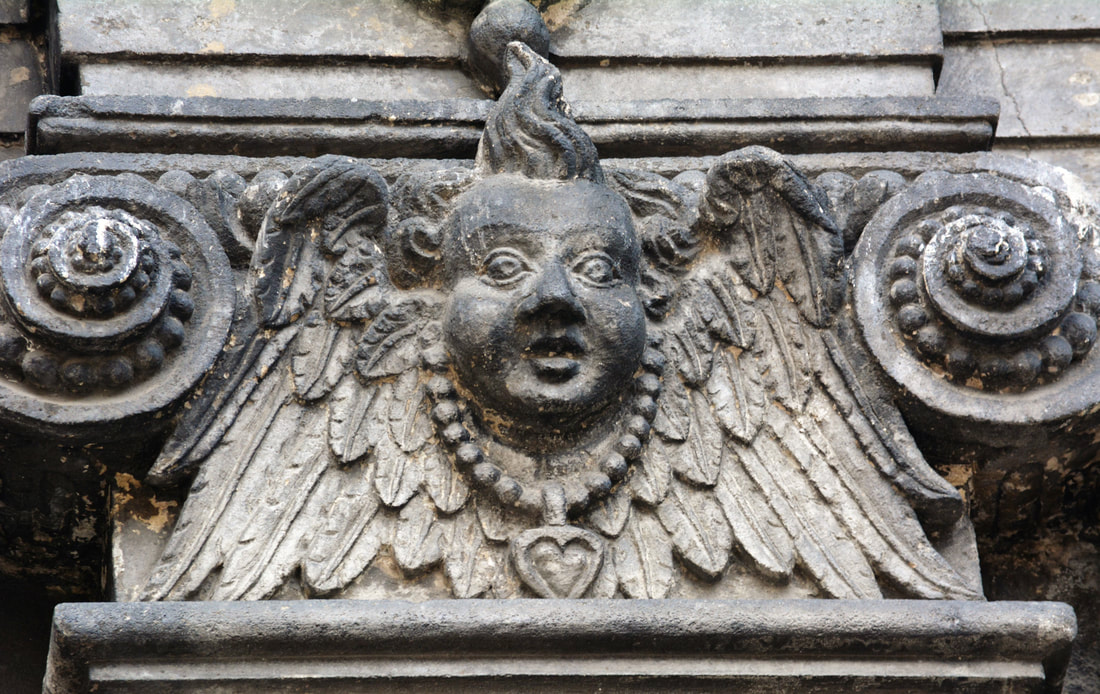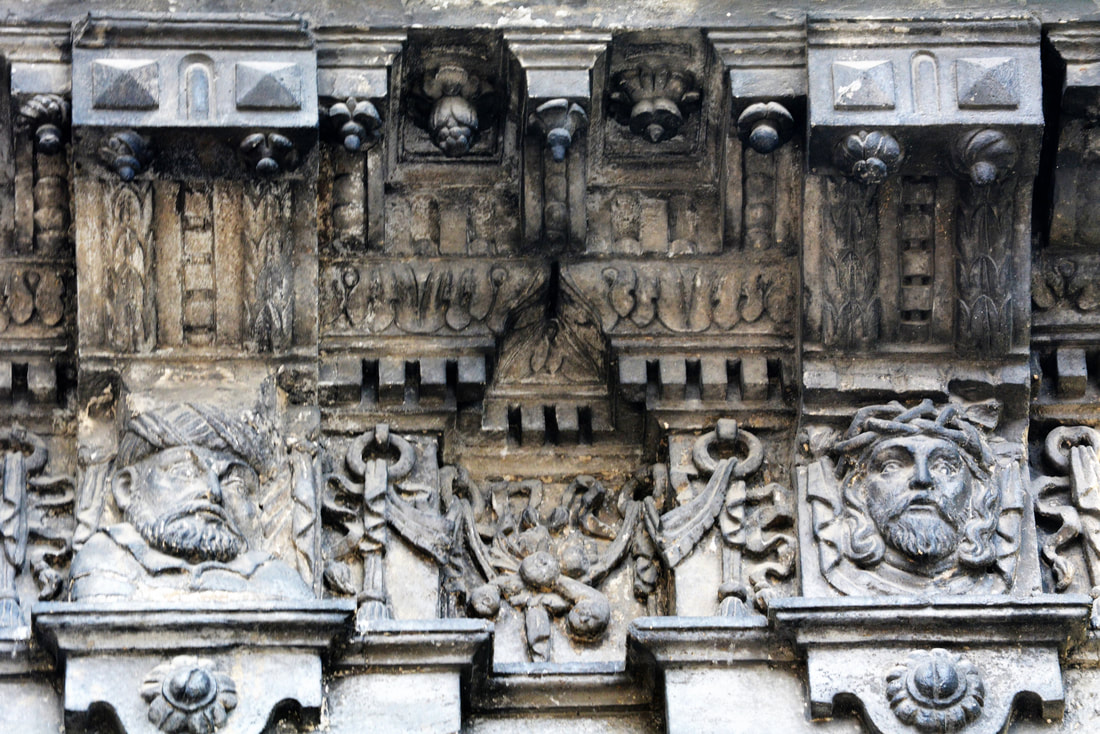what is Ukrainian literature?
The beginnings of Ukrainian literature emerge from the cultural background of the Kievan Rus'. The writings in Old-Church Slavonic may be treated as the premises of the literary tradition of the country, predating the actual development of Ukrainian language. Over the centuries, the country was a part of larger states, such as Polish-Lithuanian Commonwealth, Poland, Russia, Austro-Hungarian and even the Ottoman Empire, a fact that introduced inspirations of complexity into its cultural landscape. Among the early-modern Ukrainian writers are such culturally ambivalent figures as the Ruthenian rector of the University of Bologna, Yuriy Drohobych (1450-1494) or a philosopher of Cossack origin, Gregory Skovoroda (1722-1794).
The typical, local literary tradition in the 16th and 17th c. gave rise to folk epic poems, dumy. They related the exploits of the Cossacks in proper Ukrainian (no longer Church Slavonic). It is the time of the kobzars (itinerant bards or minstrels); the most famous of them, in the 19th c., was Ostap Veresai from Poltava. Finally, the modern Ukrainian literature became a fully formed system in the last years of the 18th and the first half of the 19th c., with such writers as Ivan Kotliarevsky and Hryhorii Kvitka-Osnovianenko, a classicist poet and the author of the novel Marusya (1834). The Golden Age of Ukrainian letters came with Taras Shevchenko (1814-1861), Ivan Franko (1856-1916) and the iconic female figure of Lesya Ukrainka (1871-1913).
The typical, local literary tradition in the 16th and 17th c. gave rise to folk epic poems, dumy. They related the exploits of the Cossacks in proper Ukrainian (no longer Church Slavonic). It is the time of the kobzars (itinerant bards or minstrels); the most famous of them, in the 19th c., was Ostap Veresai from Poltava. Finally, the modern Ukrainian literature became a fully formed system in the last years of the 18th and the first half of the 19th c., with such writers as Ivan Kotliarevsky and Hryhorii Kvitka-Osnovianenko, a classicist poet and the author of the novel Marusya (1834). The Golden Age of Ukrainian letters came with Taras Shevchenko (1814-1861), Ivan Franko (1856-1916) and the iconic female figure of Lesya Ukrainka (1871-1913).
I have readSerhiy Zhadan, Месопотамія | Mesopotamia (2014)
Ziemowit Szczerek, Przyjdzie Mordor i nas zje, czyli tajna historia Słowian (2013) Oksana Zabuzhko, Польові дослідження з українського сексу | Fieldwork in Ukrainian Sex (1996) |
Vertical Divider
|
I have written... nothing ...
|
love and tenderness
As I've mentioned in other places (such as the memories of my first travel to Hungary), as young Poles, we were educated to despise roughly speaking all the Eastern Europe. I must confess having received, at home, literally an education for fear and hatred, as far as Ukraine was concerned. My mother warned me against any love relationship with a Ukrainian; they were dangerous people who might kill the Poles. What is more, as she imagined, they were close at hand; many people she simply didn't like were "Ukrainians" for her, including the wife of my father's brother, together with all her family.
I don't know why she did not object to my participation in a short trip to L'viv organized by my art school. I was around 19 at the time, it must have been early in the year 1992, for I remember it was a trip to Ukraine, not to the Soviet Union, and Ukraine as a country gained its independence in August 1991. The economic crisis at that moment must have been almost unimaginably acute because I could not even spend the money my mother exchanged for me in the bazar; I had no clear idea how much it was, but I suppose she couldn't have given me a lot. I also remember a strange scene at the hotel where we stayed, a less than modest place, where tea-towels were distributed to serve as bath towels. But on my bed there was none, the towel was missing. The hotel administrator came and accused me, with great rage, of having stolen it. Finally, she said that if the towel were not found, I had to pay 10 roubles. I took the money out of my pocket and gave her. I will never forget the sudden, uncontrollable expression of gladness on that woman's face. I have no doubt that she hide the towel on purpose to get those 10 roubles, and it really made a big difference for her to get that money. It was the first time in my life that I met people poorer than myself, and it caused me considerable surprise.
At the art school, we organized that trip in order to see a couple of monuments, such as Boim Chapel and Lychakiv Cemetery, as well as the gallery that contained a considerable collection of Polish impressionists and colourists from the first decades of the 20th century, when those territories were part of Poland. So it was one of the first truly meaningful travels I had in my life.
I returned to Ukraine only much later; I visited L'viv with my husband in the winter, if I remember it correctly, of 2016/17. Once again, at the time, I was surprised by the riches that our (or rather my husband's) money could buy. Obviously, it was quite a different Ukraine at the time. We could go to the opera almost every evening of our stay (we saw I'm not sure how many, Madame Butterfly, and others); we ate remarkable Tatar food, and I dared to order bull's testicles in an Armenian restaurant.
It was thus with great pleasure that I went to Kyiv next summer for a conference. The train was a brand new one, bought with the EU funds, yet the passage of the border still had that old, Soviet taste of humiliation, especially for the Ukrainians. To be on the safe side, I had a heavily stamped invitation from the university, to show to the border guards in case of trouble. But the guard only enjoyed taking his time at turning the pages of my passport, which contained numerous visas of West African countries. A woman seated at my side got visibly nervous because of that, i.e. the fact the border guard kept my passport for such a long time. Later on, when my passport was finally returned, I told her that it were just the exotic stamps he liked; she was alleviated to hear that.
Overall, I've built a sense of love and tenderness for Ukraine and the Ukrainians, still treated like colonial subjects by the Poles, even those who were flocking to L'viv and Kyiv for vacations. For the Poles, Ukraine was the cheapest destination on the planet Earth, no wonder that many of the country's worse elements met there: lower working class males, aimless nationalists, all sorts of strange people. The Ukrainians tolerated us, I must confess, with sweetness, suavity, and kindness of Christian saints. Much better, in any case, than we deserved.
I don't know why she did not object to my participation in a short trip to L'viv organized by my art school. I was around 19 at the time, it must have been early in the year 1992, for I remember it was a trip to Ukraine, not to the Soviet Union, and Ukraine as a country gained its independence in August 1991. The economic crisis at that moment must have been almost unimaginably acute because I could not even spend the money my mother exchanged for me in the bazar; I had no clear idea how much it was, but I suppose she couldn't have given me a lot. I also remember a strange scene at the hotel where we stayed, a less than modest place, where tea-towels were distributed to serve as bath towels. But on my bed there was none, the towel was missing. The hotel administrator came and accused me, with great rage, of having stolen it. Finally, she said that if the towel were not found, I had to pay 10 roubles. I took the money out of my pocket and gave her. I will never forget the sudden, uncontrollable expression of gladness on that woman's face. I have no doubt that she hide the towel on purpose to get those 10 roubles, and it really made a big difference for her to get that money. It was the first time in my life that I met people poorer than myself, and it caused me considerable surprise.
At the art school, we organized that trip in order to see a couple of monuments, such as Boim Chapel and Lychakiv Cemetery, as well as the gallery that contained a considerable collection of Polish impressionists and colourists from the first decades of the 20th century, when those territories were part of Poland. So it was one of the first truly meaningful travels I had in my life.
I returned to Ukraine only much later; I visited L'viv with my husband in the winter, if I remember it correctly, of 2016/17. Once again, at the time, I was surprised by the riches that our (or rather my husband's) money could buy. Obviously, it was quite a different Ukraine at the time. We could go to the opera almost every evening of our stay (we saw I'm not sure how many, Madame Butterfly, and others); we ate remarkable Tatar food, and I dared to order bull's testicles in an Armenian restaurant.
It was thus with great pleasure that I went to Kyiv next summer for a conference. The train was a brand new one, bought with the EU funds, yet the passage of the border still had that old, Soviet taste of humiliation, especially for the Ukrainians. To be on the safe side, I had a heavily stamped invitation from the university, to show to the border guards in case of trouble. But the guard only enjoyed taking his time at turning the pages of my passport, which contained numerous visas of West African countries. A woman seated at my side got visibly nervous because of that, i.e. the fact the border guard kept my passport for such a long time. Later on, when my passport was finally returned, I told her that it were just the exotic stamps he liked; she was alleviated to hear that.
Overall, I've built a sense of love and tenderness for Ukraine and the Ukrainians, still treated like colonial subjects by the Poles, even those who were flocking to L'viv and Kyiv for vacations. For the Poles, Ukraine was the cheapest destination on the planet Earth, no wonder that many of the country's worse elements met there: lower working class males, aimless nationalists, all sorts of strange people. The Ukrainians tolerated us, I must confess, with sweetness, suavity, and kindness of Christian saints. Much better, in any case, than we deserved.
like a Pole in Ukraine
I remember them. Sitting right on the walkway, their belongings crawling around them, like some extravagant sans-abri. Shameless and prepossessing, taking the space for granted, owners of the country. Polish trumps in Ukraine. Males, exclusively. Most of them didn't write any books, of course. But one did; just one of those guys, a journalist named Ziemowit Szczerek. It was before the war, of course, in 2013. The text, under the title Przyjdzie Mordor i nas zje, czyli tajna historia Słowian, is just as ugly, unkempt and uncultured as their attitudes. But I guess it must be so dreadfully true.
Szczerek's violent, uncompromising narration starts and ends at the Polish-Ukrainian border. On the way on, he declares kissing the bones of his ancestors as the aim of his travel to Ukraine; on the way back, he feels ashamed by the attitude of the Polish guard humiliating an elderly Ukrainian man, a writer travelling to Kraków to participate in a meeting with his readers. Tak bardzo, kurwa, wstyd, are his last words. As if decency, after all, could survive such a travel, and more, as if decency might be born from such a travel. For Szczerek goes to Ukraine to drink cheaply and, if an occasion presents itself, to get more than just his mysterious excitant, Wigor (the elixir sold in Ukrainian pharmacies as a remedy for the erectile disfunction). Or rather, Ukraine is presented in this book as a (dubious) remedy against male disfunction sensu latissimo. Against the deeply rooted malady of the Pole. For being a Pole is an aberration, sort of inborn tare. The book is just a collection of anecdotes illustrating the anomaly. A careful, multifaceted teratological study.
I could be more lenient with this text. To say, for example, that it is a variation on the old beatnik paradigm, a novel of the road. A drug trip not through America but through Europe's last frontier, dzikie pola (wild fields), as we used to call it in Polish. Even if the wilderness at heart is something that the Polish travellers bring with themselves from home. Of course, Ukraine resonates with it. It is ugly, as ugly as a country might be. (From one of my own travels, I remember the circumstance of having forgotten my socks at home, that forced me to buy a Ukrainian pair. Later on, I contemplated them with awe, wondering how man could have produced something so perfectly opposite to universal human sense of aesthetics -- Szczerek prefers to contemplate a Kamaz lorry door re-used as a garden entrance). Nonetheless, that pervading, awe-inspiring ugliness is just one side of the coin; Ukraine used to have good things, especially as late in History as 2013. But of course, those good things were unavailable, invisible, out of the range of those Polish gonzo travellers Szczerek portrayed, since they came expressly to indulge in their sense of superiority. They came to Ukraine like to a zoo, and Ukraine looked back at them as at monkeys. This is why the road could lead to that sole and only conclusion: Tak bardzo, kurwa, wstyd.
The family relation with Kerouac is certainly not the only intertextual instance in Szczerek's book. The very title is composed of two literary allusions. Tolkien's concept of Mordor stands for the elemental forces of the East (the author's assertion in this text is away from the current meaning of the term in the Polish language, as we use the name "Mordor" to refer to the inhuman world of big corporations). The original Secret History (tajna historia) is of course that of the Mongols (i.e. the 13th-century account of the conquests of Genghis Khan). Be that as it may, the ultimate secret of the Middle Earth is explained by Taras, a west-Ukrainian patriot. On the one hand, the culture of the hobbits, Aragorn, and the elves - the world of form, order, and abundance, eating well and dancing well. On the other, the world of the shapeless, inarticulate, barely sketched: Tępe, grubo ciosane orki i trolle o mordach jak kalarepa. Chlupiące w szaroburym krajobrazie. Bełkoczące w jakiejś niedorobionej wersji ludzkiego języka.
Oh, benevolent reader, go and chose, if you can. Later on in Ukraine, as we hear on the television news, Mordor-plus-Genghis-Khan actually came and chose for them.
Ziemowit Szczerek, Przyjdzie Mordor i nas zje, czyli tajna historia Słowian, Kraków: Korporacja Ha!Art, 2013.
Kraków, 15.08.2023.
Szczerek's violent, uncompromising narration starts and ends at the Polish-Ukrainian border. On the way on, he declares kissing the bones of his ancestors as the aim of his travel to Ukraine; on the way back, he feels ashamed by the attitude of the Polish guard humiliating an elderly Ukrainian man, a writer travelling to Kraków to participate in a meeting with his readers. Tak bardzo, kurwa, wstyd, are his last words. As if decency, after all, could survive such a travel, and more, as if decency might be born from such a travel. For Szczerek goes to Ukraine to drink cheaply and, if an occasion presents itself, to get more than just his mysterious excitant, Wigor (the elixir sold in Ukrainian pharmacies as a remedy for the erectile disfunction). Or rather, Ukraine is presented in this book as a (dubious) remedy against male disfunction sensu latissimo. Against the deeply rooted malady of the Pole. For being a Pole is an aberration, sort of inborn tare. The book is just a collection of anecdotes illustrating the anomaly. A careful, multifaceted teratological study.
I could be more lenient with this text. To say, for example, that it is a variation on the old beatnik paradigm, a novel of the road. A drug trip not through America but through Europe's last frontier, dzikie pola (wild fields), as we used to call it in Polish. Even if the wilderness at heart is something that the Polish travellers bring with themselves from home. Of course, Ukraine resonates with it. It is ugly, as ugly as a country might be. (From one of my own travels, I remember the circumstance of having forgotten my socks at home, that forced me to buy a Ukrainian pair. Later on, I contemplated them with awe, wondering how man could have produced something so perfectly opposite to universal human sense of aesthetics -- Szczerek prefers to contemplate a Kamaz lorry door re-used as a garden entrance). Nonetheless, that pervading, awe-inspiring ugliness is just one side of the coin; Ukraine used to have good things, especially as late in History as 2013. But of course, those good things were unavailable, invisible, out of the range of those Polish gonzo travellers Szczerek portrayed, since they came expressly to indulge in their sense of superiority. They came to Ukraine like to a zoo, and Ukraine looked back at them as at monkeys. This is why the road could lead to that sole and only conclusion: Tak bardzo, kurwa, wstyd.
The family relation with Kerouac is certainly not the only intertextual instance in Szczerek's book. The very title is composed of two literary allusions. Tolkien's concept of Mordor stands for the elemental forces of the East (the author's assertion in this text is away from the current meaning of the term in the Polish language, as we use the name "Mordor" to refer to the inhuman world of big corporations). The original Secret History (tajna historia) is of course that of the Mongols (i.e. the 13th-century account of the conquests of Genghis Khan). Be that as it may, the ultimate secret of the Middle Earth is explained by Taras, a west-Ukrainian patriot. On the one hand, the culture of the hobbits, Aragorn, and the elves - the world of form, order, and abundance, eating well and dancing well. On the other, the world of the shapeless, inarticulate, barely sketched: Tępe, grubo ciosane orki i trolle o mordach jak kalarepa. Chlupiące w szaroburym krajobrazie. Bełkoczące w jakiejś niedorobionej wersji ludzkiego języka.
Oh, benevolent reader, go and chose, if you can. Later on in Ukraine, as we hear on the television news, Mordor-plus-Genghis-Khan actually came and chose for them.
Ziemowit Szczerek, Przyjdzie Mordor i nas zje, czyli tajna historia Słowian, Kraków: Korporacja Ha!Art, 2013.
Kraków, 15.08.2023.
the white coat
(my recollection of the war in Ukraine)
The event I recollect happened when the war in Ukraine was about his 100th day, or not even as far as that, I think. In any case, it was still counted by days, not weeks or months, or years. I was on my way back from Lisbon. I decided to go there right at the beginning of the invasion because the news was so worrying; pretty well everyone in France was discussing if and how and when the little pills of iodine should be distributed. The shooting was right at a nuclear power station. Yet after two months, I got tired of the cheap hostels in Lisbon, and I went back to Frankfurt, and then to Heidelberg, where I was to participate in a conference, and from there I was navigating eastwards through Prague. From Prague, I was to come back to Kraków.
As usual, I bought my Flixbus ticket on my phone app. Only the hour and the number of the line were indicated. It was only while pacing up and down the Florenc bus station in Prague that I realized that the bus I was to take was going to Uman. Uman? That was beyond my geography. Where on earth is Uman? I discovered it soon. Uman was in Ukraine. And on an A4 sheet of paper put behind the windscreen pane of the bus, there was also the information that the bus would continue to Odessa. Odessa? The city regularly appeared on the news as a place where a Russian landing was expected. The beach had been secured with a minefield.
It was an uncanny sensation to imagine the jolly green Flixbus going right into the war zone. The German Flixbus, the synonym of the insouciance of Europe, of the sunny travels, of my journeys to Amsterdam, full of hope and faith in a better future. Suddenly, its fluorescent green jumped out of horror. Of course, I had plenty of time to get down before the border, but even so, the sensation of Unheimlich was chilling my bones.
I looked at the young woman on the seat next to mine. Who was she? What urgency was sending her back into the war? All the way from Prague to Kraków, she didn't remove her clear sport coat, presumably an elegant one - that was what such young Ukrainian women usually thought about such coats. Her nails were carefully varnished, just as mine were broken and unkempt. Even if the fact that I had recently been at an academic conference contributed to civilizing my appearance, I was certainly looking much worse than her. Dirtier, my old clothes worn away, barely surviving my vagabond Portuguese stay. And she in her impeccable white coat, just as grotesque as the jolly green Flixbus going straight into the war zone. As dirty and worn away as I was, I thought alhamdulillah I am still who I am, a solvent citizen in my own Europe. She was a war refugee who didn't manage to be one. Most probably, she was on her way back to Ukraine, because she didn't manage to find any job, any way of living in the Czech Republic. Certainly, such aid as the hot tea and sandwiches distributed to them at the border did not make anyone last long. In Poland, people even took those refugees to their private homes, in the first days of frenzy. But of course, as the first days of frenzy became weeks, not even months, the patience drained. And to get jobs and living, those young women would have to strip their white coats and remove the varnish from their nails. Strangely, many of those early refugees were unable to do so. Get back to the dirty and the worn away that must have been not so very far behind in their lives. They must have become those East European aristocrats quite recently, barely years ago. The coat was quite a recent acquisition. Maybe that was precisely the reason why it was so difficult to let it go.
I wonder what would happen to her, back in Ukraine. To her and to her white coat, so impeccable, contrasting so brightly with my own clothes. Maybe one day we see her again, a true war refugee, broken like those from Syria on the Byelorussian border. At that time, I have no doubt about it, the Poles won't even let her enter. There will be no hot tea, no sandwiches. Just the usual, bleak inhumanity of Eastern Europe.
I spoke to her in Polish. She answered in English, annoyed, stating adamantly that she-does-not-understand-me. A great lady from Ukraine, with her varnished nails, unwilling to make an effort to accommodate to my tongue, that is of course just on the brink of mutual comprehension. Unaware that she'd just failed her role as a war refugee, she spoke English to me like to an inferior. She had no country to return to, but she did not know it yet. I also had no country to return to; both our returns were merely phantasmagorical. The countries into which the jolly green Flixbus was taking us were a mirage, a reflection of something distant in a layer of overheated air.
I'd known it for several years, since the messenger of Europe, that friend who was good in Andersen's tale, came to me, and brought en gammel kuffert, and said: "Pak ind!". Since that time, I've been trying to keep not too far from my forthcoming Flixbus connection, the little app always ready to use on my phone containing a spare SIM card from France. I had my gammel slåbrok constantly on my back, ready to go. She, with her white coat, wishing to be a lady, did not understand much of the never-ending Ballad of East and West. She knew nothing of Europe and her chilling welcomes. She just knew her irritable little English.
Too little to survive.
Kraków, 29.06.2022.
As usual, I bought my Flixbus ticket on my phone app. Only the hour and the number of the line were indicated. It was only while pacing up and down the Florenc bus station in Prague that I realized that the bus I was to take was going to Uman. Uman? That was beyond my geography. Where on earth is Uman? I discovered it soon. Uman was in Ukraine. And on an A4 sheet of paper put behind the windscreen pane of the bus, there was also the information that the bus would continue to Odessa. Odessa? The city regularly appeared on the news as a place where a Russian landing was expected. The beach had been secured with a minefield.
It was an uncanny sensation to imagine the jolly green Flixbus going right into the war zone. The German Flixbus, the synonym of the insouciance of Europe, of the sunny travels, of my journeys to Amsterdam, full of hope and faith in a better future. Suddenly, its fluorescent green jumped out of horror. Of course, I had plenty of time to get down before the border, but even so, the sensation of Unheimlich was chilling my bones.
I looked at the young woman on the seat next to mine. Who was she? What urgency was sending her back into the war? All the way from Prague to Kraków, she didn't remove her clear sport coat, presumably an elegant one - that was what such young Ukrainian women usually thought about such coats. Her nails were carefully varnished, just as mine were broken and unkempt. Even if the fact that I had recently been at an academic conference contributed to civilizing my appearance, I was certainly looking much worse than her. Dirtier, my old clothes worn away, barely surviving my vagabond Portuguese stay. And she in her impeccable white coat, just as grotesque as the jolly green Flixbus going straight into the war zone. As dirty and worn away as I was, I thought alhamdulillah I am still who I am, a solvent citizen in my own Europe. She was a war refugee who didn't manage to be one. Most probably, she was on her way back to Ukraine, because she didn't manage to find any job, any way of living in the Czech Republic. Certainly, such aid as the hot tea and sandwiches distributed to them at the border did not make anyone last long. In Poland, people even took those refugees to their private homes, in the first days of frenzy. But of course, as the first days of frenzy became weeks, not even months, the patience drained. And to get jobs and living, those young women would have to strip their white coats and remove the varnish from their nails. Strangely, many of those early refugees were unable to do so. Get back to the dirty and the worn away that must have been not so very far behind in their lives. They must have become those East European aristocrats quite recently, barely years ago. The coat was quite a recent acquisition. Maybe that was precisely the reason why it was so difficult to let it go.
I wonder what would happen to her, back in Ukraine. To her and to her white coat, so impeccable, contrasting so brightly with my own clothes. Maybe one day we see her again, a true war refugee, broken like those from Syria on the Byelorussian border. At that time, I have no doubt about it, the Poles won't even let her enter. There will be no hot tea, no sandwiches. Just the usual, bleak inhumanity of Eastern Europe.
I spoke to her in Polish. She answered in English, annoyed, stating adamantly that she-does-not-understand-me. A great lady from Ukraine, with her varnished nails, unwilling to make an effort to accommodate to my tongue, that is of course just on the brink of mutual comprehension. Unaware that she'd just failed her role as a war refugee, she spoke English to me like to an inferior. She had no country to return to, but she did not know it yet. I also had no country to return to; both our returns were merely phantasmagorical. The countries into which the jolly green Flixbus was taking us were a mirage, a reflection of something distant in a layer of overheated air.
I'd known it for several years, since the messenger of Europe, that friend who was good in Andersen's tale, came to me, and brought en gammel kuffert, and said: "Pak ind!". Since that time, I've been trying to keep not too far from my forthcoming Flixbus connection, the little app always ready to use on my phone containing a spare SIM card from France. I had my gammel slåbrok constantly on my back, ready to go. She, with her white coat, wishing to be a lady, did not understand much of the never-ending Ballad of East and West. She knew nothing of Europe and her chilling welcomes. She just knew her irritable little English.
Too little to survive.
Kraków, 29.06.2022.
my readings in Ukrainian literature
gyre
I was never a fan of Ukrainian literature. It felt painful to me as if it was a sort of Poland where things went even worse. A sort of parallel universe in which a theodicy would be even harder to formulate. But after the Russian aggression, it became almost a must to read Ukrainian literature (in Poland, not necessarily in the West; as I was in Portugal during the first weeks and months of the war, I noticed, with a chill in my backbone, that the tables in the bookshops were bending down under heavy piles of Brothers Karamazov and the remaining Russian classics). Be that as it may, as soon as I came back to Kraków, I felt obliged to acquire my own personal copy of Serhiy Zhadan's Mesopotamia and, painful as it was, to read it.
Painful, I say, because it's not my kind of literature; I couldn't read more than a couple of pages at a time. In the novel, they are all drunk most of the time, and their world is permanent chaos, a sort of widening gyre in which old values (any values) cannot hear the falconer. Things falling apart, and that was written several years before the beginning of the catastrophe. Unless the catastrophe was precisely the moment of their independence. The book may suggest how hard it was to stand on their own feet, there in Kharkiv, in the hinterland.
That's a portrait of a lesser Europe, just like many things (books and movies) made in the Balkans. Those burials. Those weddings. The false Rolex of the kid. The acute, torturing awareness they are not, cannot be elegant. Not even decent. They would perhaps like to be. To live a different life. But the civilisation is still a light beneath their horizon; they have just a vague idea about it, a presentment it might exist. But they cannot help turning in a widening gyre.
I suppose some readers enjoy such books, just like the bourgeois publics of western Europe always enjoyed books about criminals, vagabonds, and all sorts of underclass heroes. Such is the origin of the novel as a genre; it serves to make decent, solvent people feel better. More comfortable. Be that as it may, to me, those Ukrainian novels cause a persistent discomfort; there was a time, in my distant youth, that I also wanted, so desperately, to live a different life. They make me remember how close to the brink we actually are.
Serhij Żadan, Mezopotamia, trans. Michał Petryk and Adam Pomorski, Wołowiec, Wydawnictwo Czarne, 2014.
Kraków, 12.08.2022.
Painful, I say, because it's not my kind of literature; I couldn't read more than a couple of pages at a time. In the novel, they are all drunk most of the time, and their world is permanent chaos, a sort of widening gyre in which old values (any values) cannot hear the falconer. Things falling apart, and that was written several years before the beginning of the catastrophe. Unless the catastrophe was precisely the moment of their independence. The book may suggest how hard it was to stand on their own feet, there in Kharkiv, in the hinterland.
That's a portrait of a lesser Europe, just like many things (books and movies) made in the Balkans. Those burials. Those weddings. The false Rolex of the kid. The acute, torturing awareness they are not, cannot be elegant. Not even decent. They would perhaps like to be. To live a different life. But the civilisation is still a light beneath their horizon; they have just a vague idea about it, a presentment it might exist. But they cannot help turning in a widening gyre.
I suppose some readers enjoy such books, just like the bourgeois publics of western Europe always enjoyed books about criminals, vagabonds, and all sorts of underclass heroes. Such is the origin of the novel as a genre; it serves to make decent, solvent people feel better. More comfortable. Be that as it may, to me, those Ukrainian novels cause a persistent discomfort; there was a time, in my distant youth, that I also wanted, so desperately, to live a different life. They make me remember how close to the brink we actually are.
Serhij Żadan, Mezopotamia, trans. Michał Petryk and Adam Pomorski, Wołowiec, Wydawnictwo Czarne, 2014.
Kraków, 12.08.2022.
